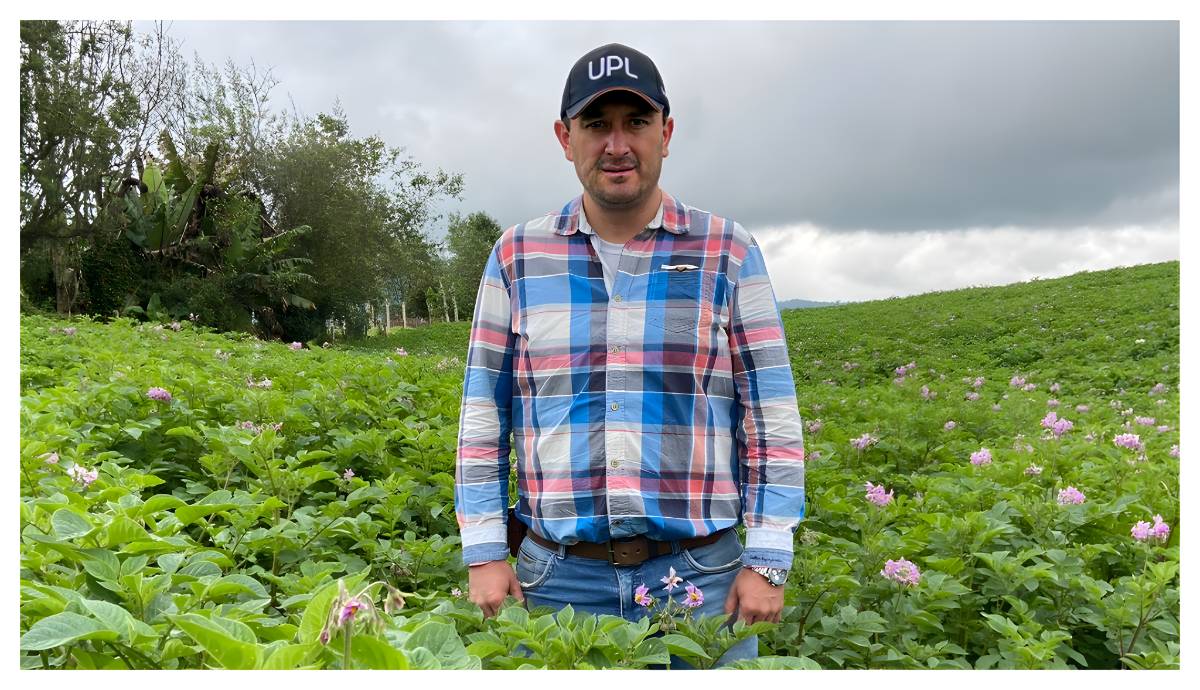 Sergio Andrés Martínez Pérez
Sergio Andrés Martínez Pérez


Deep-Rooted Family Values
Cream of the crop
The potato is the world’s fourth-most important crop and the first among non-grains. As a nutritional powerhouse, its set to contribute even more to food security as the global population continues to rise. The need for sustainable potato cultivation is therefore increasing.
In Colombia’s Antioquia department, Sergio Andrés Martínez Pérez is playing a key role in ensuring potatoes have a sustainable future as a source of nutrition, income, and employment.
An expert in the field
Sergio’s farm, La María, is part of a farming story that goes back generations. His ancestors “were great potato growers of Antioquia” and instilled in him a love for the land that still runs in his veins. He also leads the Coagrounión Cooperative, a group of approximately 32 potato growers cultivating 1,200 hectares in La Unión.
The value of family farms like La María is clear within national economies, but with 90 percent of all farms in the world managed by similar families, making them potential agents of change in achieving food security for generations is a priority for Sergio. “We want to teach future generations what our ancestors have taught us and continue the family tradition as potato growers,” he says. “This generational relay is important to guarantee food security.”
Feeding the future
Sergio recognises that to achieve food security, the world needs to embed sustainability from farm to fork. “Sustainability is important because it guarantees food security. Potatoes in cold climates are a driving force for rural agriculture and generate the most jobs,” he says. “Globally, the population is growing and so is the need for food. Sustainable agriculture is linked to and focused on supplying this need.”
For over 20 years, he has been using UPL’s biological inputs and biostimulants such as Curaxil, Difecol and Biozyme to minimise the negative environmental impact of potato production. “UPL’s portfolio has high-quality products that protect and cure our crops, leading to good crop phytosanitary, development and productivity,” he says. “They have also solved problems such as Phytophthora infestans, Alternaria and Epitrix.”
Today’s decisions, tomorrow’s opportunities
Boosting global food security in the midst of climate change also means diversifying crop production. Sergio’s future plans involve “planting and exporting new crops such as gulupa and granadilla, rotating and intercropping with potatoes, carrots, corn, pastures and increasing planting areas.”

Related Stories
